Intro to Docker

The contents of the the slides have been stol..., umm,
liberally borrowed from Docker Slideshare materials.
Thanks to everyone at Docker, Inc!
liberally borrowed from Docker Slideshare materials.
Thanks to everyone at Docker, Inc!
Since it started in March 2013...
- >200,000 pulls
- >7,500 github stars
- >200 significant contributors
- >200 projects built on top of docker
- UIs, mini-PaaS, Remote Desktop...
- 1000’s of Dockerized applications
- Memcached, Redis, Node.js, Hadoop...
- Integration in Jenkins, Travis, Chef, Puppet, Vagrant and OpenStack
- Meetups arranged around the world…
- with organizations like Ebay, Cloudflare, Yandex, and Rackspace presenting on their use of Docker
The Challenge
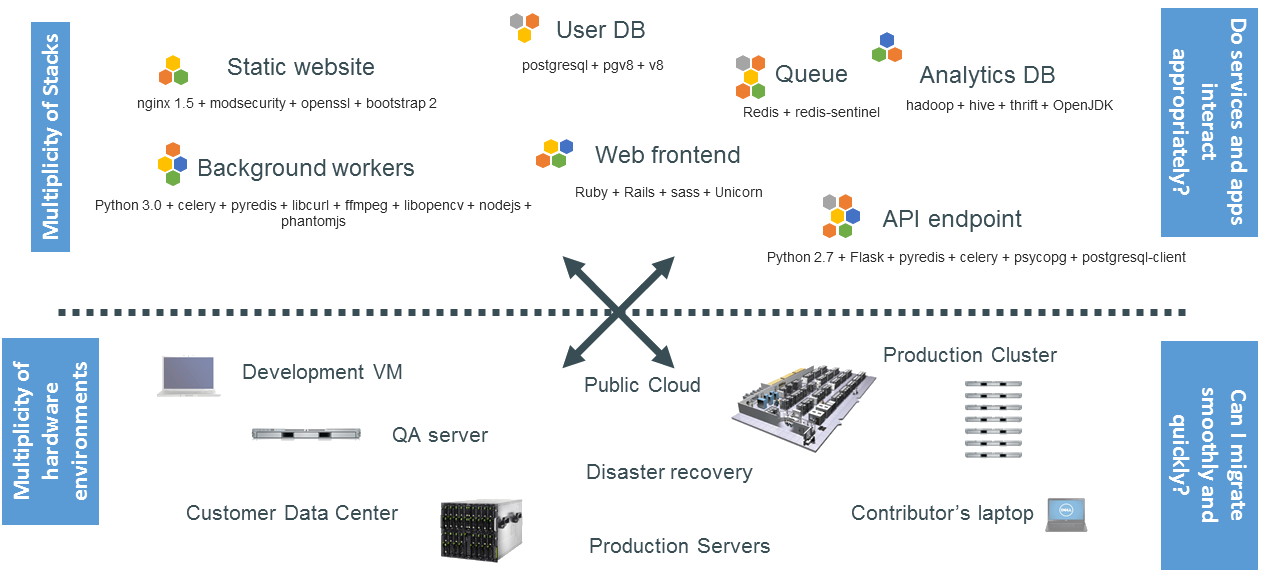
The Matrix from Hell
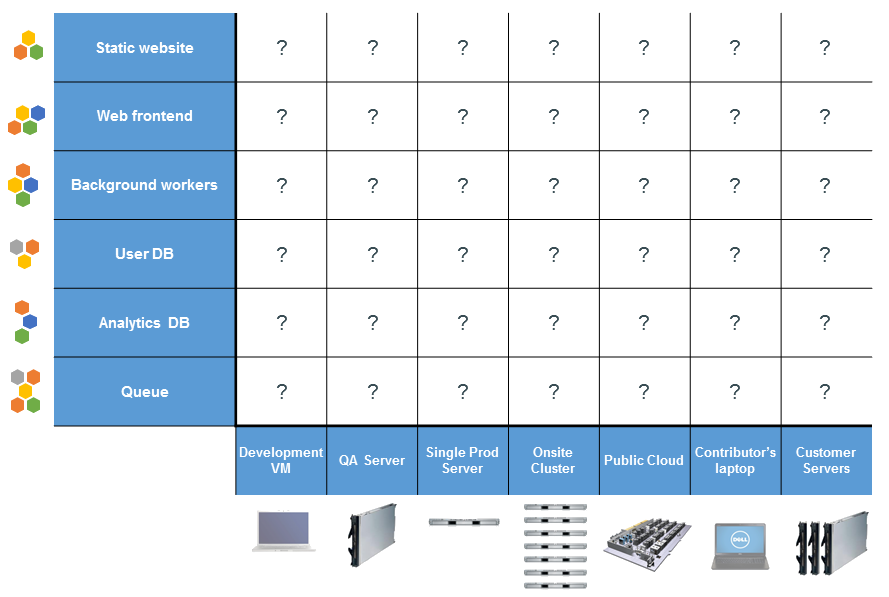
Cargo Transport Pre-1960
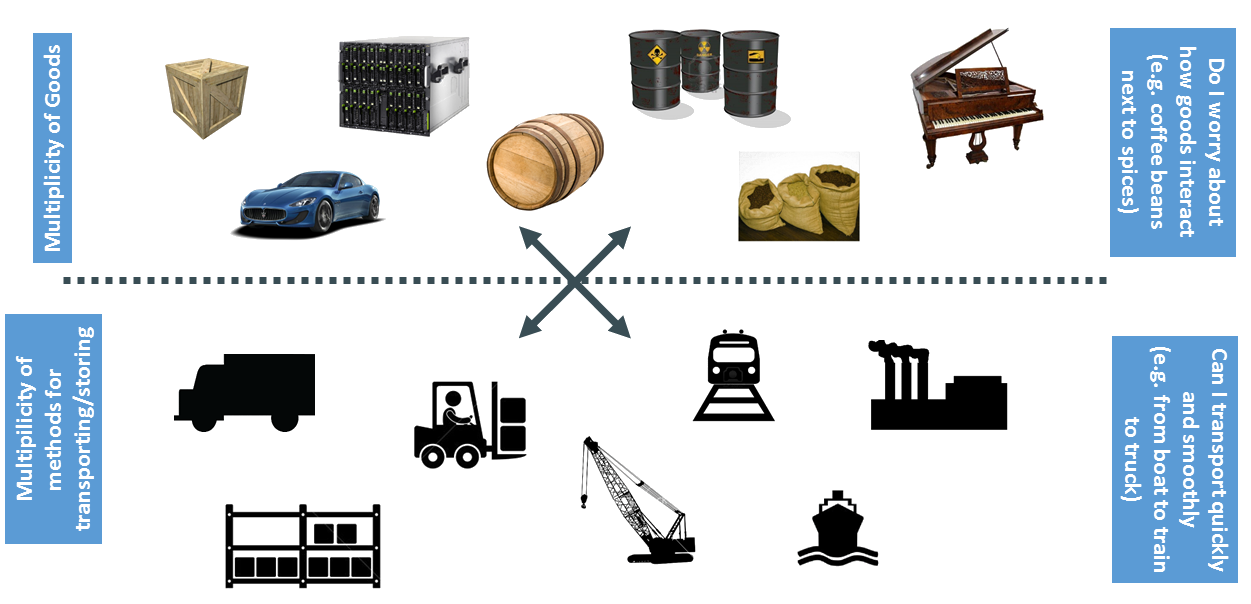
Also a Matrix from Hell

Solution: Intermodal Shipping Container
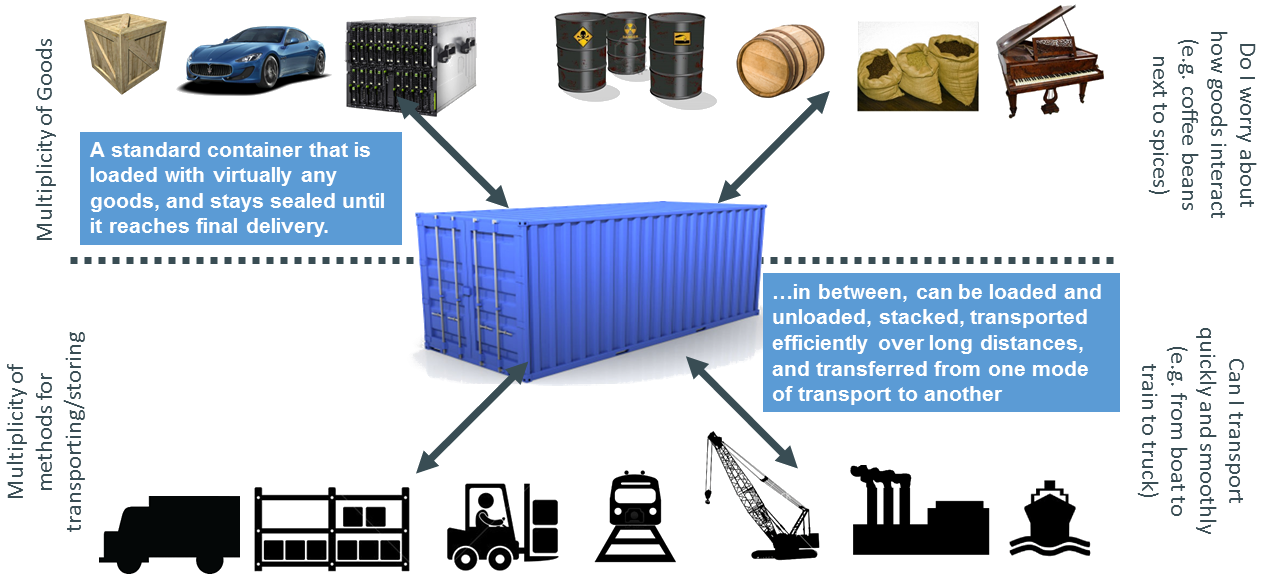
Docker is a Container System for Code
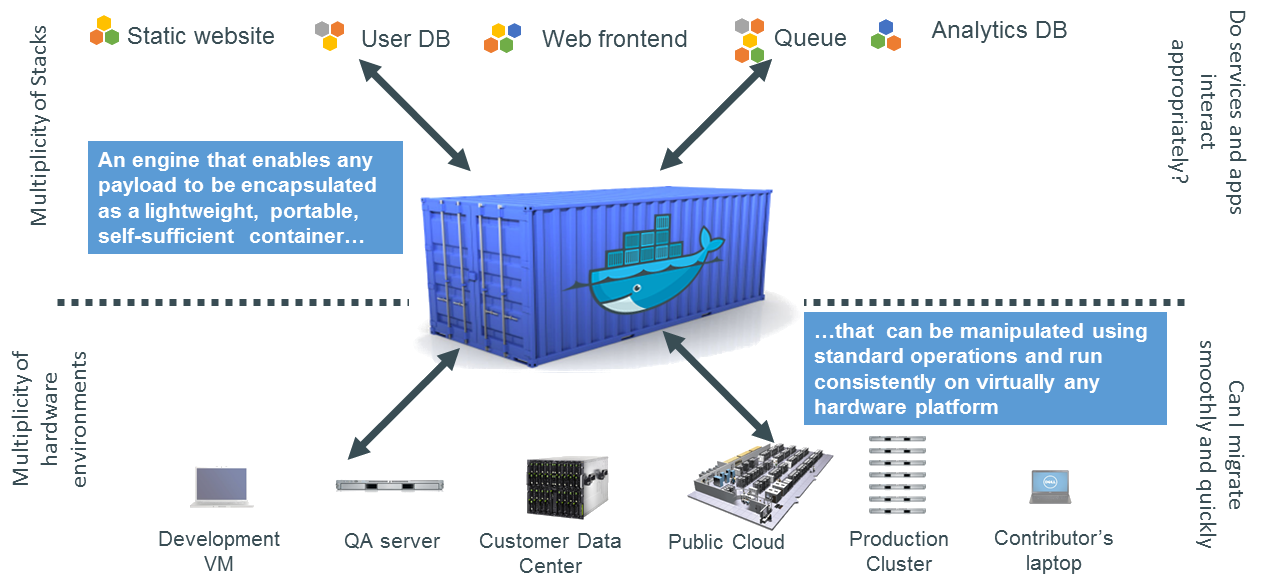
Docker Eliminates the Matrix from Hell
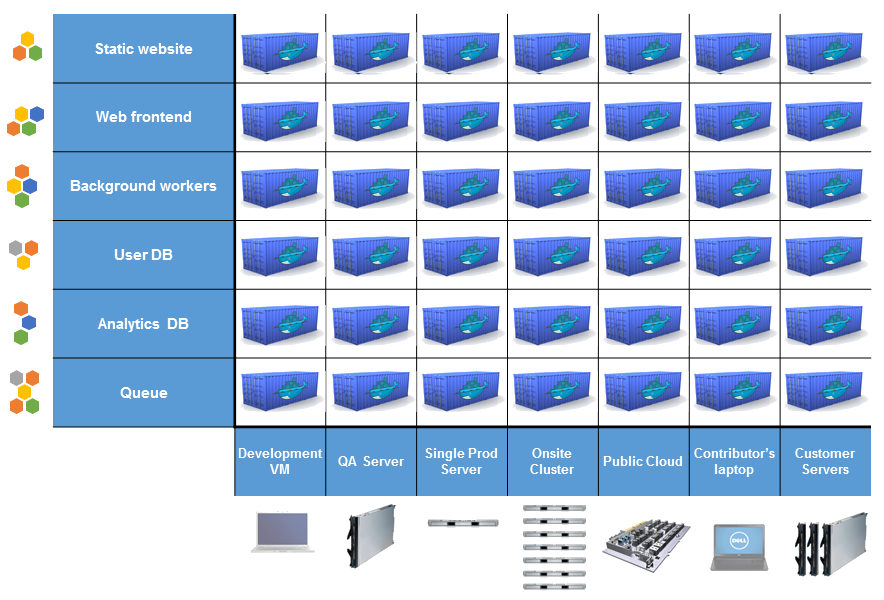
Why Developers Care
Build once... (finally) run anywhere*
- A clean, safe, hygienic, portable runtime environment for your app.
- No worries about missing dependencies, packages and other pain points during subsequent deployments.
- Run each app in its own isolated container, so you can run various versions of libraries and other dependencies for each app without worrying.
- Automate testing, integration, packaging...anything you can script.
- Reduce/eliminate concerns about compatibility on different platforms, either your own or your customers.
- Cheap, zero-penalty containers to deploy services. A VM without the overhead of a VM. Instant replay and reset of image snapshots.
* Where "anywhere" means an x86 server running a modern Linux kernel
(3.2+ generally or 2.6.32+ for RHEL 6.5+, Fedora, & related)
(3.2+ generally or 2.6.32+ for RHEL 6.5+, Fedora, & related)
Why Administrators Care
Configure once... run anything
- Make the entire lifecycle more efficient, consistent, and repeatable
- Increase the quality of code produced by developers.
- Eliminate inconsistencies between development, test, production, and customer environments.
- Support segregation of duties.
- Significantly improves the speed and reliability of continuous deployment and continuous integration systems.
- Because the containers are so lightweight, address significant performance, costs, deployment, and portability issues normally associated with VMs.
Why it Works: Separation of Concerns

More Technical Details
Why
- Run everywhere
- Regardless of kernel version
- Regardless of host distro
- Physical or virtual, cloud or not
- Container and host architecture must match...
- Run anything
- If it can run on the host, it can run in the container
- If it can on a Linux kernel, it can run
What
- High level: a lightweight VM
- Own process space
- Own network interface
- Can run stuff as root
- Can have its own /sbin/init (different from host)
- <<machine container>>
- Low level: chroot on steroids
- Can also not have its own /sbin/init
- Container = isolated processes
- Share kernel with host
- <<application container>>
VMs vs Containers
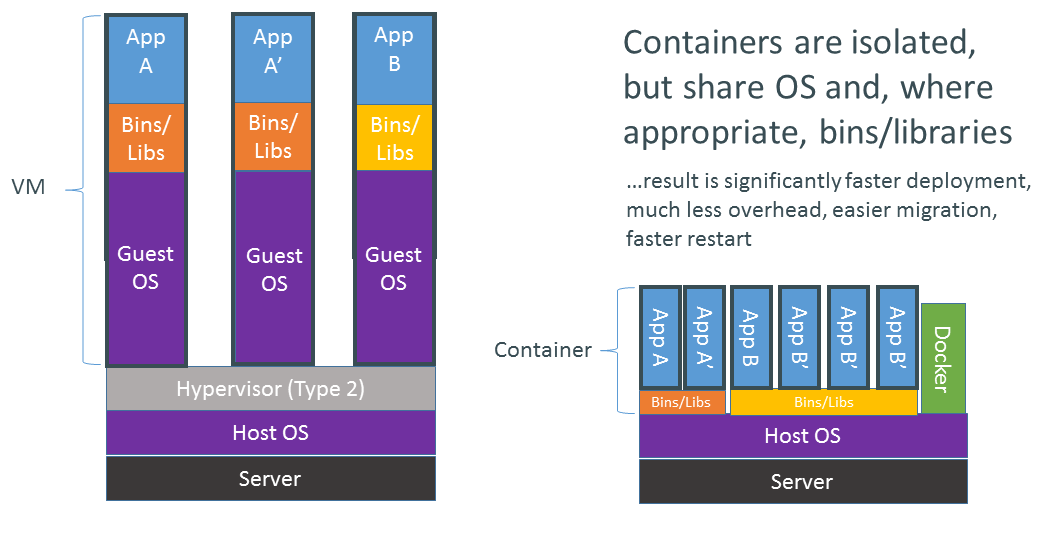
Why are Docker Containers Lightweight?
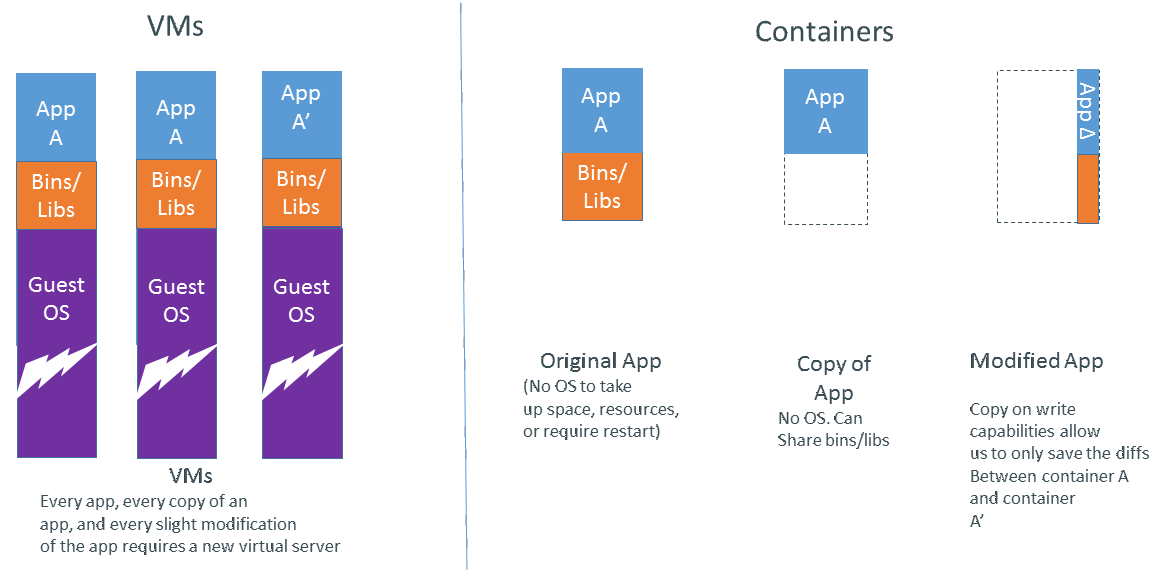
What are the Basics of a Docker System?
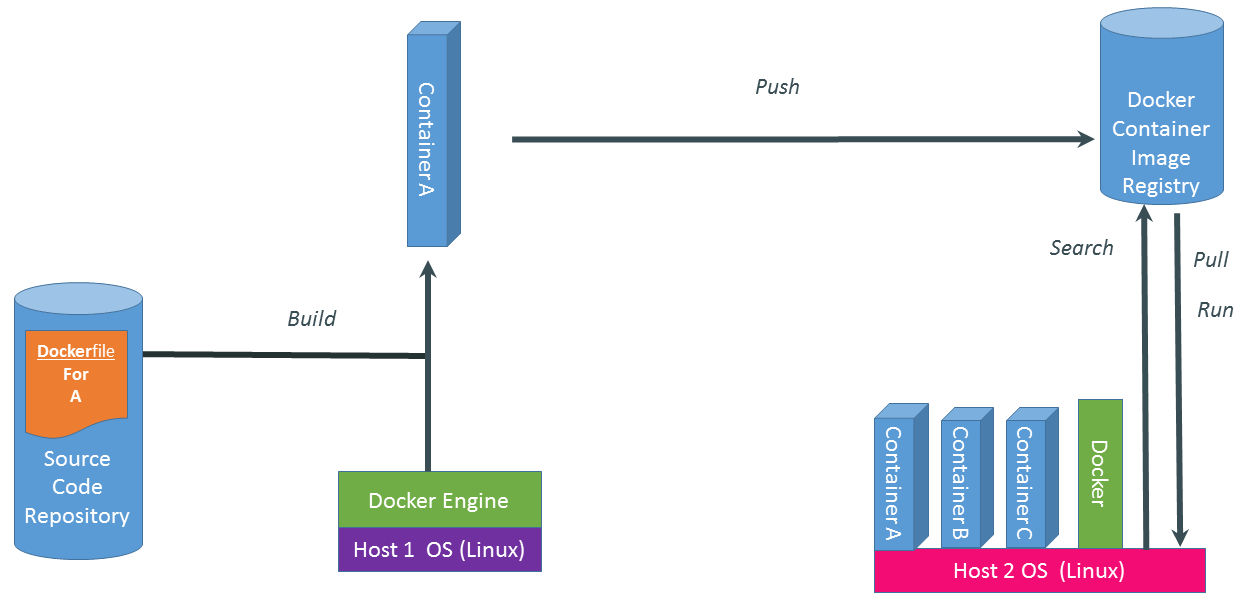
Changes and Updates
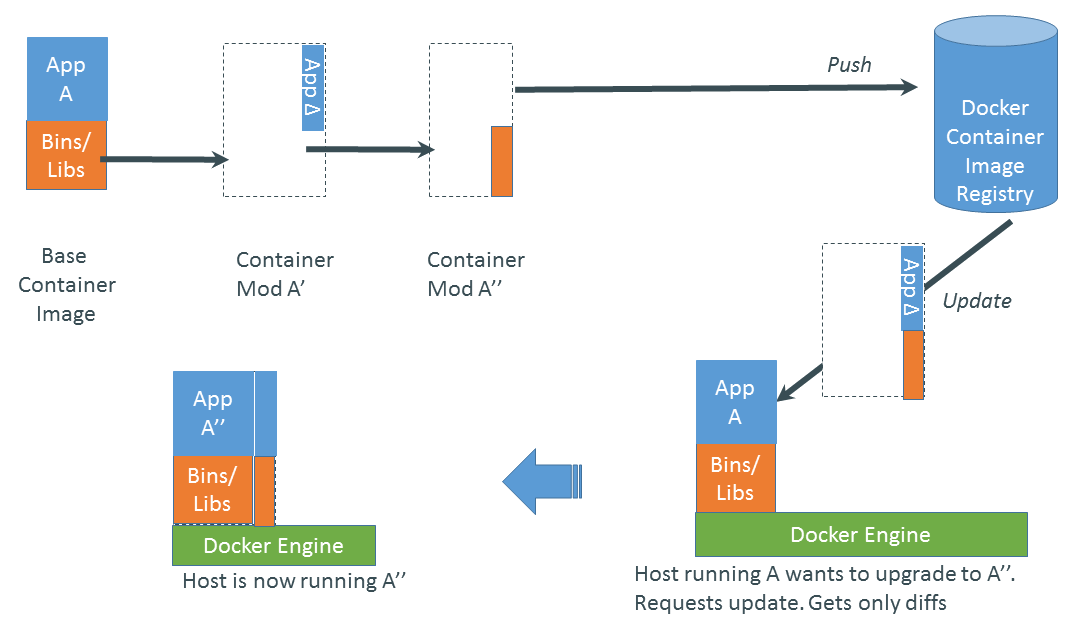
Demo Time
Ecosystem Support
- Operating systems
- Virtually any distribution with a 2.6.32+ kernel
- Red Hat/Docker collaboration to make work across RHEL 6.4+, Fedora, and other members of the family (2.6.32 +)
- CoreOS—Small core OS purpose built with Docker
- OpenStack
- Docker integration into NOVA (& compatibility with Glance, Horizon, etc.) accepted for Havana release
- Private PaaS
- OpenShift, Solum (Rackspace, OpenStack), Other TBA
- Public PaaS
- Deis, Voxoz, Cocaine (Yandex), Baidu PaaS
- Public IaaS
- Native support in Rackspace, Digital Ocean,+++
- AMI (or equivalent) available for AWS & other
- DevOps Tools
- Integrations with Chef, Puppet, Jenkins, Travis, Salt, Ansible +++
- Orchestration tools
- Mesos, Heat, ++
- Shipyard & others purpose built for Docker
- Applications
- 1000’s of Dockerized applications available at index.docker.io
Docker Futures
- Docker 0.7 (current release)
- Fedora compatibility
- Reduce kernel dependencies
- Device mapper
- Container linking
- Docker 0.8 (Dec)
- Shrink and stabilize Core
- Provide stable, pluggable API
- RHEL compatibility
- Nested containers
- Beam: Introspection API based on Redis
- Expand snapshot management features for data volumes
- Will consider this “production ready”
- Docker 0.9 (Jan)
- Docker 1.0 (Feb)
- Will offer support for this product
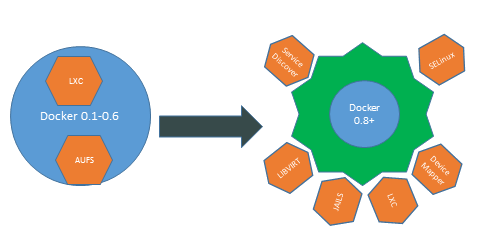
Want to Learn More?
- www.docker.io
- Documentation
- Getting started (tutorial, installation, guide, etc)
- Introductory whitepaper
- Github: dotcloud/docker
- IRC: freenode #docker
- Google Group: docker-user
- Twitter: @docker
- Meetups: www.docker.io/meetups